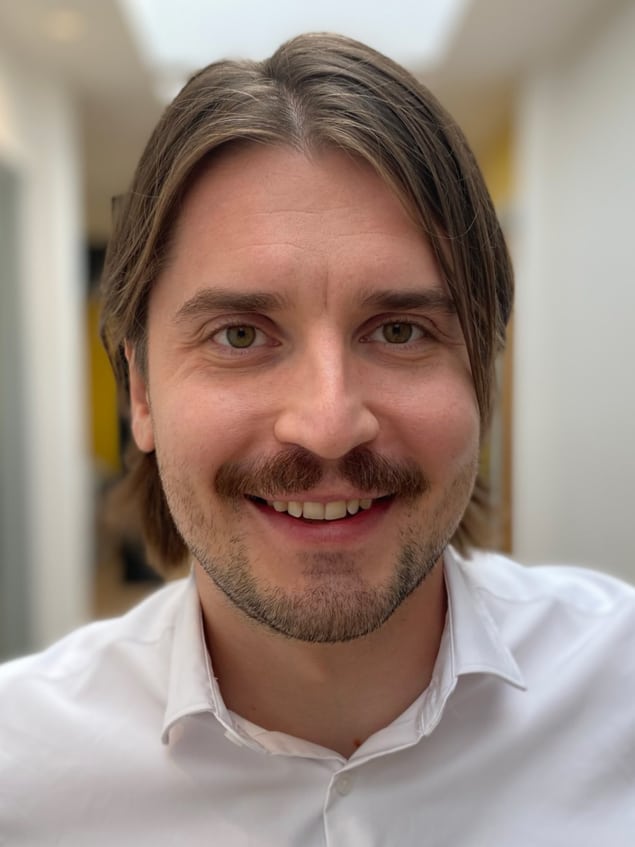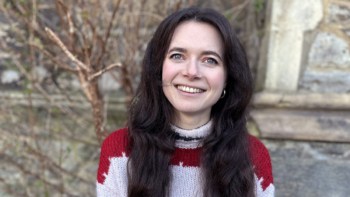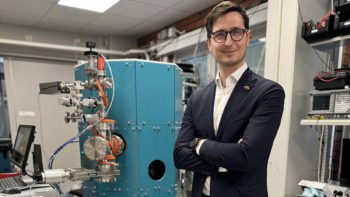Maksym Sich is co-founder and chief executive of Aegiq, a quantum-photonics spin-out company working on the development of secure quantum data communications and quantum photonics. Sich did a PhD and postdoc in semiconductor and quantum science at the University of Sheffield before moving into industry. In 2021 Aegiq won a Business Start-Up Award from the Institute of Physics.

What skills do you use every day in your job?
I use multiple skills every day. Some of them are people skills, but others are about understanding the physics, so you get an interesting synergy there. You need to understand the subject matter of what you’re doing, but to develop a business you also need to be able to translate that into solving real-world problems and figure out how it applies to everybody’s lives. As a chief executive, you are responsible for getting your team together, ensuring good dynamics and, of course, business growth, so that’s something else I do every day.
What do you like best and least about your job?
What I like most is the scope and the fact that the quantum-technology sector is very new and there’s a lot to be discovered, not just in terms of science but also in terms of business and how the company can grow. That’s something that drives you and can get you through any difficulty. In academic research you tend to have a particular direction, but when you run a business you release yourself from those boundaries. You’re free to do whatever works best. It can be a curse and a blessing, but I focus on the latter.
What I like least is the quantity of tasks that need to be done, and the challenge of balancing the management work with the actual thinking and creative work. There is always a lot happening at the same time and I find that multitasking can be quite taxing.
What do you know today, that you wish you knew when you were starting out in your career?
This is the most difficult question, because there is a lot, but that’s probably a good sign because it means you have developed. It’s important to ask yourself why you are doing what you’re doing, and to really understand and be clear with yourself about the reasons. That allows you to make better decisions about what to pursue and how to build your career more efficiently. The more incoming opportunities you have, the more critical this question becomes. You should also ensure you are careful with your time.
Ask yourself why you are doing what you’re doing, and be clear with yourself about the reasons. This allows you to make better decisions about what to pursue and how to build your career
For people who have just graduated, I would advise them to explore topics outside physics too. Degrees are typically very technical and scientific, but they largely neglect the aspects of why you do physics and how it is applicable in the context of society, because there are not many people to teach that. It’s not easy to put that in a curriculum. It’s nearly common sense, but you need a professor who has worked in a lot of different settings to teach this, and there are very few out there. So it’s really important for students to start thinking about these questions. A lot of people tend to be quite narrowly focused and neglect other possibilities, but the opportunities are there if you can think outside the purely technical skillset. If you focus completely on physics and think that whatever else is happening is probably not as great, then you’re going to miss out.


